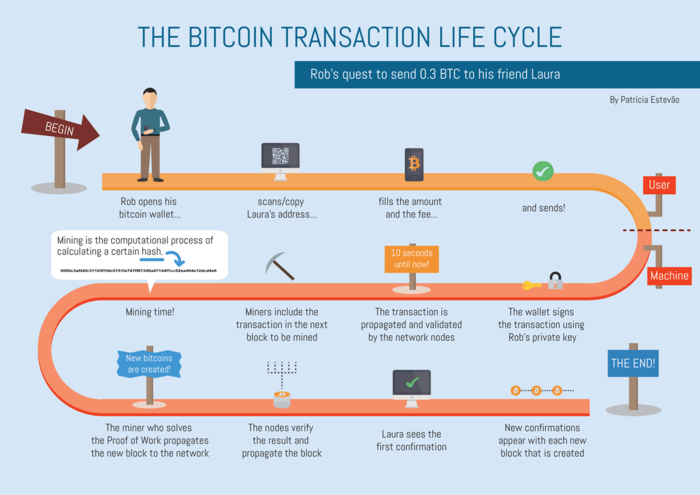Transferring crypto to a wallet usually takes around 10 to 30 minutes, depending on network congestion and the specific cryptocurrency being transferred. The duration may also vary based on the transaction fee paid.
When transferring crypto to a wallet, many factors can impact the time it takes for the transaction to be completed. The speed of the network, the level of congestion, and the specific cryptocurrency being transferred are all influential. Additionally, the transaction fee paid can also affect the transfer time.
Understanding these variables can help individuals anticipate how long the transfer process might take. In the following sections, we will delve further into these factors to provide a comprehensive understanding of the crypto transfer process and the various elements that can influence its duration.
Factors Affecting Crypto Transfer Time
Crypto transfer time to a wallet can vary due to factors such as network congestion, chosen cryptocurrency, and transaction fees. Network congestion may lead to delays, while some cryptocurrencies have faster transfer times than others. Additionally, higher transaction fees can expedite the transfer process.
| Factors Affecting Crypto Transfer Time: | |
| Transaction Volume | High transaction volume can lead to delays in transferring crypto funds. |
| Network Congestion | Busy networks can slow down the processing of crypto transactions. |
| Cryptocurrency Type | Some cryptocurrencies have faster transfer times compared to others. |

Average Transfer Times For Popular Cryptocurrencies
Transferring popular cryptocurrencies to a wallet can take varying amounts of time. The average transfer times depend on the cryptocurrency, with some transactions being completed within minutes, while others may take hours or even days. It’s essential to research the specific cryptocurrency you’re using to estimate how long the transfer process might take.
| Cryptocurrency | Average Transfer Time to Wallet |
|---|---|
| Bitcoin | Approximately 10-60 minutes based on network congestion. |
| Ethereum | Roughly 15-30 seconds for a standard transaction. |
| Litecoin | Usually around 2.5 minutes, faster than Bitcoin. |
| Ripple | Almost instantaneous, typically takes a few seconds. |
Steps Involved In Crypto Wallet Transfer
Creating a Wallet: To transfer crypto to a wallet, start by creating a suitable wallet. Choose a reputable platform or software that supports the type of cryptocurrency you own.
Generating a Receiving Address: Once the wallet is set up, generate a unique receiving address. This address acts as your identification code for receiving cryptocurrency.
Initiating the Transfer: Next, initiate the transfer by logging into the sending platform or software. Enter the recipient’s wallet address and the amount you wish to transfer.
Confirmation Process: After confirming the transfer details, submit the transaction. The time it takes to complete the transfer will depend on various factors such as network congestion and transaction fees.
Keep in mind that crypto transfers are generally quick, but delays can occur due to network issues. It’s always recommended to double-check the correctness of the recipient’s wallet address before initiating the transfer.
Tips To Speed Up Crypto Transfers
To speed up crypto transfers:
- Use higher transaction fees to prioritize your transfer in the network.
- Choose a less congested time for transferring crypto to avoid delays.
- Optimize wallet settings, such as selecting the right network and confirming the recipient’s wallet address.
Transfer Time Comparison: Traditional Banking Vs. Crypto
Processing Time: Transferring cryptocurrency to a wallet typically takes 10-30 minutes, while traditional bank transfers can take several business days.
Transaction Fees: Crypto transfers generally have low or no fees, compared to traditional bank transfers that may incur higher fees.
Accessibility: Crypto transfers can be initiated anytime, anywhere with an internet connection, whereas traditional banking processes are often limited by business hours and location.
Security Considerations In Crypto Wallet Transfers
Transferring crypto to a wallet involves certain security considerations. The foremost step is to protect your private keys. These keys serve as the access code to your wallet and should never be shared or stored online. Verify the receiving address before making any transfers to ensure the accuracy of the destination. This prevents any irreversible mistakes. Additionally, steer clear of phishing attacks by being cautious of suspicious emails or links. Always double-check the source before entering any sensitive information. By following these safety measures, you can securely transfer your crypto to a wallet without jeopardizing your funds.
Real-life Crypto Transfer Examples
Crypto transfers can vary greatly based on network traffic and fees.
Quick transfers can complete in a matter of minutes to an hour.
Some users reported delays of up to 24 hours for their transactions.
Factors like blockchain congestion and network speed impact transfer times.

Future Trends In Crypto Transfer Speed
Discover the evolving landscape of crypto transfer speed, with advancements reducing the time taken to transfer funds to wallets. As technology progresses, transaction speeds are poised to enhance the efficiency of crypto transfers, improving user experience and convenience.
| Layer 2 Solutions | Advancements in Blockchain Technology |
| Crypto transfers are becoming faster due to layer 2 solutions. | Blockchain technology improvements are enhancing transfer speeds. |
In recent years, layer 2 solutions have emerged to expedite cryptocurrency transactions. These innovations tackle network congestion issues, leading to quicker transfers. Additionally, advancements in blockchain technology are streamlining crypto transfer processes. These developments signal a promising future for swift and efficient wallet transfers.
Frequently Asked Questions On How Long Does It Take To Transfer Crypto To Wallet
How Long Does It Usually Take To Transfer Crypto To A Wallet?
Transferring crypto to a wallet typically takes a few minutes to an hour, depending on the network congestion and the specific cryptocurrency being transferred.
What Factors Influence The Transfer Time For Crypto To A Wallet?
The speed of transferring crypto to a wallet depends on network traffic, the cryptocurrency’s blockchain technology, and the transaction fee paid for priority processing.
Can The Transfer Time For Crypto To A Wallet Be Affected By Network Congestion?
Yes, network congestion can cause delays in transferring crypto to a wallet. High transaction volumes can slow down processing times on the blockchain network.
Conclusion
The time it takes to transfer crypto to a wallet can vary depending on several factors. These include the network congestion, blockchain fees, and the type of cryptocurrency being transferred. By understanding these factors and choosing the right wallet and blockchain network, users can optimize the speed and efficiency of their transactions.
Additionally, staying updated on technological advancements and adopting new solutions can further streamline the process. Happy Transferring!

